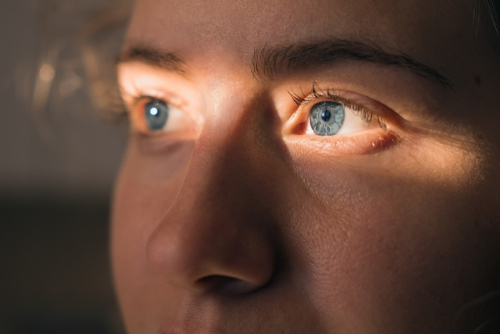
5 million Americans over the age of 50 suffer from chronic dry eyes, and this number is growing. Chances are you have experienced dry eyes at some point in your life.
Having dry eyes can be a warning sign of one or more health problems, and it can also be a problem in its own right. Untreated, dry eyes can become worse and turn into a continuous loop of irritation.
Keep reading to learn about three signs that you have dry eyes and simple dry eye self-care tips.
You Feel These Symptoms
Dry eyes have some very obvious effects that can be as discomforting as they are persistent. Symptoms include:
- Itchiness
- Aching eyes
- Grittiness
- Foreign body sensation (like a grain of sand is stuck in your eye)
- Burning
- Sensitivity to light
- Tired eyes
These are some of the most common complaints of people who suffer from chronic dry eye. They can take a serious toll on your quality of life.
These symptoms can cause your eyes to become more inflamed. This inflammation causes your eyes to produce even fewer tears. Lower tear production, in turn, causes the eye to become more inflamed.
It becomes a never-ending loop of irritation.
Your Eyesight Is Affected
Dry eyes can also cause blurry vision. In some instances, chronic dry eyes can cause your eyes to overproduce tears. This is your body dealing with the lack of hydration and lubrication.
Unfortunately, this abundance of tears may not stay on the surface of your eyes long enough to hydrate them. And, can also disrupt and distort your eyesight.
This problem can irritate you while you do simple tasks. Or, it can become dangerous if it interferes with your driving, or other high-risk tasks.
Other People Notice Your Problem
“You look tired.”
“Why are your eyes so red?”
“You should get some sleep.”
If you hear these statements from others too often, you may need to seek help for your dry eye. The redness and swelling that it can cause can be embarrassing.
While there is no shame in struggling with dry eye, there is also no shame in seeking help to cure it.
Dry Eye Treatments & Self-Care Tips
You can manage many of the effects of dry eye yourself. But, you should always check in with your eye care provider to stay up to date on the progress of your problem.
In the meantime, keep these tips in mind:
NEVER rub your eyes
While it may provide temporary relief, it usually makes the problem worse. Yes, rubbing your eyes stimulates tear production.
But you can also cause trauma to your cornea and spike the interior pressure of your eyes by rubbing them.
Limit allergen exposure and increase moisture in your home
Use an air purifier. Close your windows during high pollen counts.
Clean often and consider buying a decent humidifier. All these steps will turn your house into an anti-dry eye zone.
Use eye drops to refresh your eyes without rubbing them
You can use fast-acting eye drops to give you short-term eye relief. There are also more viscous brands that will last longer but may cause your vision to be blurry for a few minutes.
There are also permanent treatment options. Some options are drugs or therapy to stimulate tear production, warm compresses, and inserts that produce artificial tears.
Schedule a dry eye appointment at Rosenthal Eye Surgery and Fifth Avenue EyeCare in Great Neck, NY, today!
Have great eyesight that feels good. Stop living with chronic dry eyes.
